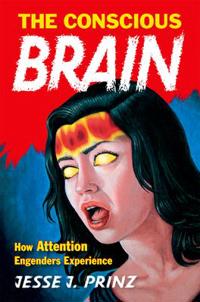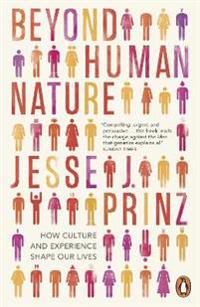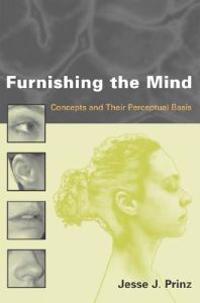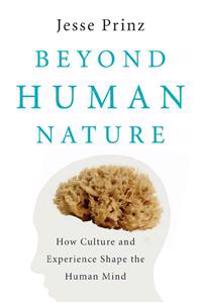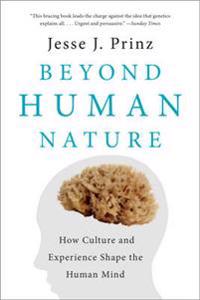The Conscious Brain (Inbunden)
avJesse Prinz
ISBN: 9780195314595 - UTGIVEN: 201211Synthesizing decades of research, The Conscious Brain advances a theory of the psychological and neurophysiological correlates of conscious experience. In the first part of the book, Prinz argues that consciousness always arises at a particular stage of perceptual processing, the intermediate level,[...]
Emotional Construction of Morals, The (Inbunden)
avJesse Prinz
ISBN: 9780199283019 - UTGIVEN: 2007-11-22The Emotional Construction of Morals (Häftad)
avJesse Prinz
ISBN: 9780199571543 - UTGIVEN: 2009-08Jesse Prinz argues that recent work in philosophy, neuroscience, and anthropology supports two radical hypotheses about the nature of morality: moral values are based on emotional responses, and these emotional responses are inculcated by culture, not hard-wired through natural selection. In the fir[...]
Kognitivistische Und Non-Kognitivistische Emotionstheorien Am Beispiel Von Martha Nussbaum Und Jesse Prinz (häftad)
ISBN: 9783656627234 - UTGIVEN: 2014-04Beyond Human Nature (Häftad)
avJesse J. Prinz
ISBN: 9780141019345 - UTGIVEN: 201301We are constantly told that human traits - from aggression to gender differences - are 'hardwired'. In "Beyond Human Nature" Jesse J. Prinz reveals that it is the societies we live in, not our genes, that determine how we think and feel. From why mental illness differs so widely between cultures to [...]
Furnishing the Mind (Pocket)
avJesse J. Prinz
ISBN: 9780262661850 - UTGIVEN: 2004-09Western philosophy has long been divided between empiricists, who argue that human understanding has its basis in experience, and rationalists, who argue that reason is the source of knowledge. A central issue in the debate is the nature of concepts, the internal representations we use to think abou[...]
Beyond Human Nature: How Culture and Experience Shape the Human Mind (Inbunden)
avJesse J. Prinz
ISBN: 9780393061758 - UTGIVEN: 201211In this era of genome projects and brain scans, it is all too easy to overestimate the role of biology in human psychology. But in this passionate corrective to the idea that DNA is destiny, Jesse Prinz focuses on the most extraordinary aspect of human nature: that nurture can supplement and supplan[...]
Beyond Human Nature (Häftad)
avJesse J. Prinz
ISBN: 9780393347890 - UTGIVEN: 2014-09In this era of genome projects and brain scans, it is all too easy to overestimate the role of biology in human psychology. But in this passionate corrective to the idea that DNA is destiny, Jesse Prinz focuses on the most extraordinary aspect of human nature: that nurture can supplement and supplan[...]
Mind and Cognition: An Anthology, 3rd Edition (Inbunden)
avEditor:William G. Lycan, Editor:Jesse J. Prinz
ISBN: 9781405157841 - UTGIVEN: 2008-02-29Mind and Cognition: An Anthology, 3rd Edition (Häftad)
avEditor:William G. Lycan, Editor:Jesse J. Prinz
ISBN: 9781405157858 - UTGIVEN: 2008-02-29

